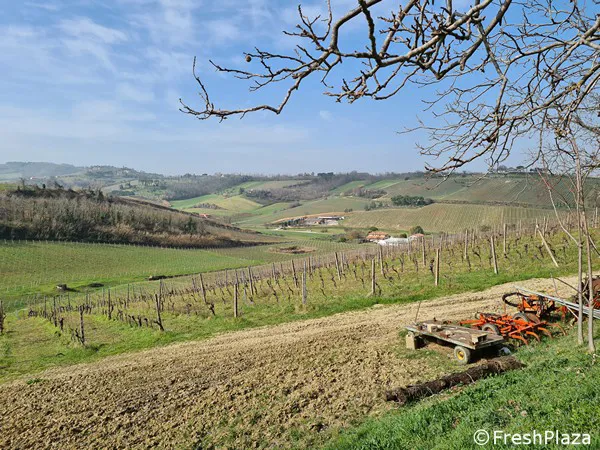"In a context marked by the uncertainty of the consequences of the war in Ukraine, rising raw material costs and an 8 percent inflation level after 13 years of progress, even a sector with high potential such as organic is slowing down (-1.9 percent in value, -2.9 percent in volume)", said Ilenia Nordera, a specialist in the sector and board member of Fruitimprese Veneto.
"Its political and environmental role is growing, supply is growing, but consumption and market value are holding back. In a climate of general distrust, with the decrease in their purchasing power, consumers are forced to review their habits and priorities, changing the quantity and sometimes the quality of what they buy."
The situation has evolved quickly, and today the industry requires a quick reaction from all operators involved to keep up with the changed situation.
"As is evident, it has left its privileged niche status and its small number of loyal consumers with economic availability and consistent philosophy of life, served by specialty stores, to move to modern distribution (which now accounts for 56 percent of sales) and in favor of discount stores and alternative outlets (e-commerce, local markets, etc.)."
In order not to risk that the organic product may come out de-qualified, poorly differentiated and excessively affected by prices, it is important that different sales solutions are created, more spaces dedicated to organic with a focus on enhancing its original characteristics and distinctive features, while maintaining sustainable prices for producers.
"As sales in large-scale retail have increased, the number of potential customers has increased, and so their expectations and information needs have changed. The purchase of organic products is related to a certain lifestyle, and consumers show a proactive attitude of more respect for the environment, to counter the climate crisis, more attention to food safety and their own and workers' well-being; but this does not mean that they are willing to pay more, and if they are not adequately informed about the guarantees offered by organic, compared to other products, they may pick up an uninformed message and remain confused."
"What interferes with the organic market are those products that are partially sustainable but not clearly identified, nor regulated, where the commitment to sustainability is only partial, such as zero residue products, integrated production, production with reduced emissions, no GMOs; not to mention the competition caused by the now widespread phenomenon of greenwashing."
"It should be mentioned, that the concept of sustainability originated with the organic sector, while the opposite is not true. It was not the demand for sustainability that spurred and sustained a type of organic production. On the contrary, without the experience gained from this production method, many sustainability goals would not have been achieved. In light of the facts, I believe that our sector and the operators who, like us, have contributed to its growth to date, have the task of reacting with an even greater sense of responsibility, especially with regard to communication," added Nordera.
It becomes of absolute necessity today to be able to defend the original brand of sustainability that affects all the goals defined in the United Nations.

In addition to consumer expectations, the awareness among farmers has also evolved, and it is important for them to be supported by distributors by adopting a communication style in line with the values of not just doing business, but also with the philosophy of organic fruit farming.
"Paradoxically, the very historical moment we are living can be a decisive moment for the sector. In this phase of climate and geopolitical crisis, in the midst of a cultural transition, organic production proves to be the right choice. Giving up on an agriculture based on the dependence on fossil fuels, through responsible use of resources, reducing pollution, making an important contribution to food security, creating new opportunities for producers, processors, and workers, while generating a beneficial input to the entire agribusiness sector, the environment and society.
BIO TRADING SRL
Via Canesella, 1 – 37060 Erbè – VR
045.6674315
office@bio-trading.it
www.bio-trading.it
